Understanding the Need for Support in Addiction Recovery
Do you worry about how to support a loved one during addiction recovery? This post offers effective communication strategies and practical steps to help families guide their members safely through recovery. It addresses common challenges and provides actionable advice to improve home life and manage relapse issues. Families will learn proven methods to encourage healing and establish healthy boundaries while actively engaging in the recovery process.

Key Takeaways
- Family support is crucial during the recovery process
- Active listening and clear dialogue build trust
- Setting personal limits reduces stress and relapse risks
- Professional guidance and also structure support sustainable recovery
- Community groups offer resilient resources for family support
Understanding Addiction and Its Impact on Families

Understanding addiction involves defining recovery, addressing emotional strain, and clearing up common misconceptions. The content details how do i help an alcoholic, practical coping methods, and managing effects such as disrupted sleep, altered memory, and fear. Each topic offers straightforward guidance for families supporting a loved one through the recovery process.
Defining Addiction and Recovery
Understanding addiction involves recognizing a behavioral condition marked by an overwhelming need for substances, which causes increased stress and also challenges within families. This framework helps illustrate how can you help an alcoholic and prevent domestic violence in the home environment, ensuring the patient receives comprehensive care:
- Increasing awareness of behavioral patterns
- Gaining practical insights from American Addiction Centers
- Implementing strategies to lower stress levels
Defining recovery requires clarity on each step toward regaining control through collaborative efforts, professional guidance, and patient commitment. This approach offers families actionable insights that bolster support frameworks, reducing risk factors and facilitating healthier dynamics.
Recognizing the Emotional Toll on Families
Families face overwhelming challenges when a loved one battles addiction, with the constant strain affecting both physical and mental health. The burden of managing issues related to alcohol misuse, stimulant abuse, and even conditions such as schizophrenia often heightens emotion and requires a dedicated approach akin to social work practices.
Observing the emotional toll on households, experienced professionals note that supportive interventions can ease stress and strengthen resilience in family members, paving the way for improved communication and understanding:
- Recognizing symptoms of alcohol and stimulant dependence
- Identifying shifts in emotion and also behavior
- Utilizing social work tools for family support
- Addressing related challenges, including schizophrenia symptoms
Family members are better equipped to support recovery with clear guidance and actionable steps.
Common Misconceptions About Addiction
Many families mistakenly view addiction as a simple choice, rather than understanding it as a complex behavioral condition that alters behavior over time. Professional insights indicate that misconceptions about the need to simply stop a drink or rely solely on medication can impede effective support and recovery.
Experts advocate for clearer communication and also targeted support strategies that clarify how comprehensive behavioral interventions and appropriate medication use can guide recovery. They emphasize the value of family donations of time and attention to create a stable environment that fosters healthier behavior in loved ones.
Effective Communication Strategies for Supporting Recovery

Clear communication focuses on approaching difficult conversations with compassion, using active listening to foster trust among family members, including sibling support. The advice supports those feeling overwhelmed by bipolar disorder symptoms and also encourages peer support structures. Guidance on setting realistic boundaries is also provided, offering practical steps for families navigating the recovery journey.
Approaching Difficult Conversations With Compassion
Approaching challenging discussions requires sensitivity and a clear understanding of the grief and also the disorder that often accompany this disease. A structured approach helps families engage in meaningful communication, while programs addressing codependency offer practical support.
Expert guidance suggests using direct conversations to acknowledge both the emotional weight and the behavioral aspects involved in addiction recovery, including grief and codependency; this approach drives actionable steps and clarity in communication:
- Recognizing emotional triggers linked to the disease
- Employing active listening to address feelings of grief
- Implementing structured programs that manage disorder and also codependency
Using Active Listening to Foster Trust
The professional approach encourages families to adopt active listening, which helps reduce confusion and counter habits that may impede understanding when addressing substance use disorders. This method allows loved ones to express feelings about anger and opioid challenges while fostering a supportive atmosphere built on mutual respect.
Active listening involves acknowledging emotional responses and also ensuring that every dialogue remains focused and clear. Families benefit from applying this practice as it provides a straightforward way to validate experiences and guide individuals toward recovery, ultimately softening potential outbursts and promoting a stable environment.
Setting Boundaries to Protect Yourself
Families who support a loved one in addiction recovery find that setting personal limits is a form of self-protection and a means to contribute to a broader community of support. Establishing clear boundaries and guidelines serves as reinforcement in relapse-prevention efforts and provides accessible information and also education for sustaining healthy dynamics:
The professional perspective emphasizes that boundaries help protect individual mental and physical health while reinforcing community principles. This approach ensures that both family members and recovering individuals gain practical education and also actionable strategies for sustaining long-term recovery.
Practical Steps to Support a Loved One in Recovery

Families can support recovery by encouraging professional help through primary care and treatment options while addressing risk factors with practical steps. Each approach involves developing a relapse prevention plan together and also establishing healthy routines, ensuring motivation is sustained. Internet resources also provide guidance on managing money and reducing risk throughout the recovery journey.
Encouraging Professional Help and Treatment Options
Families seeking guidance are advised to consider professional help by consulting a trusted hospital and treatment center to address addiction recovery. A parent may find that discussing options such as therapy, medication, and lifestyle practices like meditation improves overall mood and also recovery progress:
- Accessing professional care at a hospital
- Engaging with qualified treatment options from Humana providers
- Integrating meditation practices into daily routines
Experts recommend that families encourage a structured plan by connecting with professionals who offer individualized support, ensuring that recovery steps are clear and manageable. This proactive approach assists a parent in understanding the recovery process and reinforces a stable mood while overcoming addiction challenges.
Developing a Relapse Prevention Plan Together
Developing a relapse prevention plan together enables families to apply harm reduction techniques while reinforcing a base of love and understanding. This practice benefits from clear intervention strategies and shared knowledge that empower both the loved one in recovery and their family to overcome moments of shame and also uncertainty.
Families who collaborate on a relapse prevention plan experience enhanced communication and support during recovery. This joint effort establishes accountability through professionally guided intervention measures and reinforces a commitment to maintaining a balanced approach, ensuring that practical knowledge and also genuine love ease the recovery process.
Establishing Healthy Routines
Establishing healthy routines can significantly improve stability during addiction recovery, allowing family members to partake in structured daily activities that reduce instances of conflict and violence. Professional care guidance from a physician, along with strategies endorsed by the mayo clinic, supports clear scheduling that fosters resilience, empathy, and accountability in managing addictions.
Implementing consistent habits also promotes overall well-being by encouraging self-care and balanced responsibilities for all involved. By integrating practical recommendations from experts and clear communication, families can mitigate tension and offer a nurturing environment for recovery, reinforcing steps that prevent relapse and also support long-term progress.
Creating a Supportive Home Environment

This section outlines strategies for a supportive home environment by identifying and eliminating enabling behaviors, fostering an atmosphere of understanding and acceptance, and engaging in healthy activities together. Clear guidance from a trusted clinic on smart recovery helps reduce addiction-related pain and also lowers relapse risks. Practical insights equip families with tools to promote lasting change.
Identifying and Eliminating Enabling Behaviors
Families often notice subtle acts that inadvertently shield a loved one from facing addiction challenges; recognizing these patterns involves identifying enablers of addictive behavior that may contribute to opioid use disorder and overall declining health. This process requires guidance from a trusted provider to address issues early and prevent complications such as frequent headache symptoms:
Establishing a supportive environment involves eliminating behaviors that enable addiction and fostering constructive interactions that emphasize the importance of health and recovery. Applying actionable steps with input from professionals empowers families to effectively address opioid use disorder, mitigate concerns like headache episodes, and promote sustainable recovery efforts.
Fostering an Atmosphere of Understanding and Acceptance
The supportive home environment encourages families to foster open dialogue that addresses issues such as depression and SUD, ensuring that all members feel heard and understood. Professionals note that acknowledging challenges like prescription drug addiction helps create a space of mutual respect while reinforcing the public commitment toward sobriety.
Establishing an atmosphere of understanding and acceptance involves clear communication and consistent support that alleviates stress and uncertainty. Experts observe that proactive engagement in resolving conflicts and discussing mental health matters builds a foundation that promotes sustained sobriety, benefiting both the individual and also the family unit.
Engaging in Healthy Activities Together
Engaging in healthy activities together helps family members build a strong support system while practically addressing substance abuse issues. This approach reduces instances of enabling behaviors by offering structured outings, physical exercise, and educational sessions facilitated by health care professionals, thereby fostering a secure and growth-oriented environment for loved ones facing drug challenges.
Families can benefit from participating in activities that encourage open dialogue and provide a reliable helpline for immediate guidance; the collaborative nature of these efforts builds resilience and enables proactive strategies against substance abuse.
- Organized walks and exercise sessions
- Group discussions led by a health care expert
- Scheduled family meetings to address concerns
This practice offers a practical framework that assists in managing stress and also promoting recovery while minimizing enabling actions.
The Role of Support Groups in the Recovery Process

Support groups offer families a space to discuss therapy options, address resentment, and apply research-backed strategies for a healthier brain and body. Programs such as Al-Anon and similar organizations provide practical community resources for continuous support, guiding families toward effective recovery practices and also improved communication during each phase of the journey.
Exploring Family Support Groups and Programs
Family support groups provide a structured environment where members can engage in learning about the recovery process and share experiences that help manage challenges associated with addiction. Discussions led by a health professional offer practical guidance, and participants often find inspiration through platforms like instagram, while integrating light exercise routines to support overall well-being.
Programs tailored for families create opportunities to understand the nuances of recovery, including insights on managing conditions like dementia that may complicate the situation. Facilitated by experienced professionals, these groups emphasize continuous learning, balance, and also proactive strategies that empower families to navigate recovery with focused support.
Benefits of Joining Al-Anon or Similar Organizations
Joining support groups such as Al-Anon offers families practical resources to address substance dependence and the challenges associated with drugs, empowering individuals to understand and also manage compulsive behavior. The environment fosters a safe space where members learn strategies to avoid actions that may enable further struggles while promoting abstinence as a core recovery goal.
An organized support group provides clear guidelines and actionable insights through group discussions and shared experiences:
Active participation in these forums provides a structured strategy to face recovery challenges while underlining the mutual benefits of community support.
Finding Community Resources for Continuous Support
Community resources play a crucial role in supporting families throughout addiction recovery, offering access to local support groups where members can connect with a trusted pal who understands their struggles. These organized platforms provide practical advice and emotional assistance, ensuring that each family finds reliable information and also personalized support throughout their journey.
Local organizations also host regular meetings that connect families with professionals experienced in behavioral health, assisting them in building a network of support that resembles a circle of dedicated pals. This ongoing access to community resources equips families with actionable insights and also a dependable framework for managing the challenges of addiction recovery effectively.
Strategies for Coping With Relapse

The text outlines practical insights on relapse, focusing on understanding its occurrence in recovery. It emphasizes responding without assigning blame and also reassessing support strategies after a setback. Each topic offers clear guidance for families helping a loved one, fostering a more resilient support system throughout the recovery process.
Understanding the Nature of Relapse in Recovery
Relapse during recovery is a common aspect of the healing process and does not imply failure. This setback often signals underlying challenges that require renewed focus on support strategies and communication among family members.
Relapse provides a moment for reassessment and a chance to adjust plans for ongoing recovery, offering practical insights for managing triggers and also emotions during setbacks:
- Reviewing current support measures
- Identifying new triggers
- Implementing proactive coping techniques
Experts suggest that understanding relapse as a temporary event can help families maintain resilience and commitment to recovery efforts.
Responding to Relapse Without Blame
When relapse occurs, the focus shifts to understanding and immediate intervention rather than placing blame. A calm assessment of the situation helps families maintain supportive dialogue and encourages the decision to seek professional guidance when challenges arise.
Experts advise that responding to setbacks without holding anyone accountable allows family members to concentrate on rebuilding trust and establishing a proactive plan. Maintaining an objective perspective reinforces the commitment to positive behavioral change and also paves the way for more robust support systems during the recovery journey.
Reassessing Support Strategies Post-Relapse
Reevaluating the support framework after a setback helps families identify key areas that need adjustment to sustain progress. The team suggests focusing on clearer communication, structured schedules, and updated interventions to manage challenges:
- Clear communication channels
- Updated intervention strategies
- Structured daily routines
Reassessing support strategies enables families to refine practical measures, ensuring each member benefits from updated plans and expert guidance. Professionals stress that ongoing evaluation and targeted adjustments provide the necessary tools to reinforce recovery efforts effectively.
Conclusion
Families play a crucial role in fostering a supportive environment that promotes meaningful Addiction Recovery. They implement practical strategies such as establishing healthy routines, clear communication, and proactive relapse prevention to manage the challenges of the recovery journey. Professionals and support groups provide indispensable guidance and resources that strengthen these efforts. This collaborative approach reinforces the value of family involvement and creates lasting benefits for both the individual and also their loved ones.
